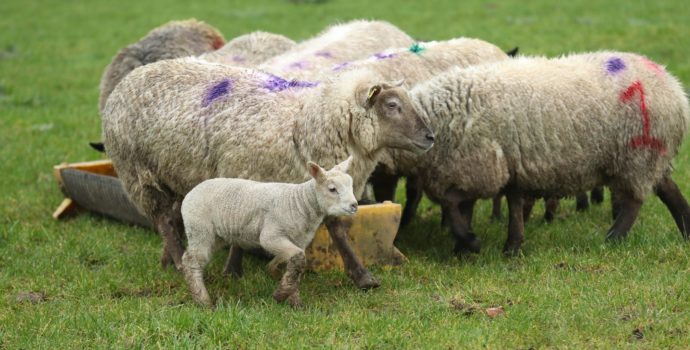Combination of Youth and Experience Key to Unlocking Agriculture’s Potential – Downey

Speaking at a media briefing at the Dublin Horse Show today (Thurs), IFA President Eddie Downey said that addressing structural challenges at farm level through the taxation system will be critical to achieving agriculture’s significant growth potential which is vital to the rural and wider economy.
Mr Downey said, “The CAP reform agreement and development of a new Rural Development Programme provide the framework for funding supports that will be in place for Irish agriculture over the next six years. This corresponds with the timeframe of Food Harvest 2020, which has identified targets for growth across the agri-food industry”.
“However, serious challenges remain within farming. First and foremost, farming must be profitable if we want to attract and retain talented and committed farmers. Farmers across all enterprises must receive a fair price and retain a viable margin for their output, which rewards them for their labour and investment.”
He continued, “At farm level, there is a requirement for a sustained improvement in competitiveness and efficiency. Some of the major barriers to achieving this are structural, in particular the relatively small size and fragmentation of Irish farms, low land mobility and the unfavourable age structure of Irish farmers”.
Eddie Downey said, “The review of agri-taxation provides an opportunity to address these structural issues head on and deliver innovative and supportive measures that will significantly improve the viability, profitability and productivity of Irish agriculture. I believe strongly that harnessing the joint strengths of youth and experience will be key to unlocking the full potential of family farms”.
In its submission to the agri taxation review, IFA has proposed an innovative measure to incentivise the lifetime transfer of family farms, while allowing both parties work together for a defined time period. The ‘Phased Transfer Partnership’ (see Note to Editor) would require an agreed transfer contract where both parent and child would work together in partnership over the period of the phased and progressive transfer of assets. As an incentive to the farm holder/parents to enter into the contract they would receive tax relief on a portion of their farm income, up to an agreed ceiling.
This ‘Phased Transfer Partnership’ will address many of the concerns for both parent and child, which are delaying the transfer of the family farm.
- It provides a coherent plan for successions for the young farmer and a stake in the decision-making process from the outset;
- For the parents, it will address real concerns about income security and the ability of the farm to support two incomes.
- It will also erase any fears about the commitment of the young farmer to the family farm, as the transfer period will be phased.
Mr Downey continued, “Existing initiatives to improve land mobility and efficiency of land use must be enhanced, including the land leasing tax exemption scheme. It must be amended to maximise the numbers participating, including removing the 40-year age limit for qualifying lessors and including incorporated farm companies as a qualifying lessee. The capital gains tax relief recently introduced to deal with farm fragmentation must be extended to accommodate whole farm sale and purchase.
Finally, the retention of 90% Agricultural Relief for those who put their land into efficient agricultural use and the maintenance of Capital Gains Tax Retirement relief will be critical to supporting the transfer of farms of a viable scale between generations”. These measures will provide a real return to the Irish economy and solutions to deal with extremes in income volatility must also be addressed in this year’s budget.
Mr Downey concluded, “With the Leaving Certificate results out next week, we continue to see record numbers of young people undertaking agricultural courses, with a view to a sustainable career in agriculture and the wider agri-food industry. A viable agriculture sector, combining youth and experience and making best use of the resources available, will be the foundation on which the expansion of the agri-food industry will be achieved”.




